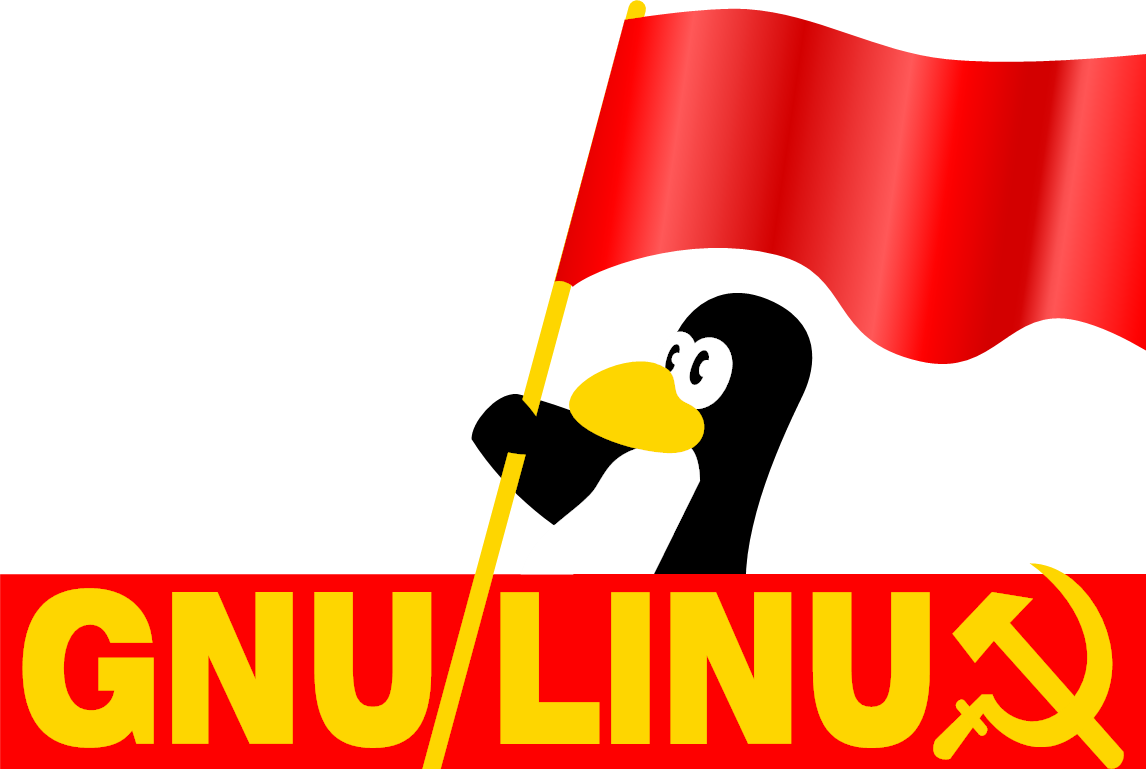this post was submitted on 07 Jan 2024
40 points (100.0% liked)
libre
9653 readers
9 users here now
Welcome to libre
A comm dedicated to the fight for free software with an anti-capitalist perspective.
The struggle for libre computing cannot be disentangled from other forms of socialist reform. One must be willing to reject proprietary software as fiercely as they would reject capitalism. Luckily, we are not alone.

Resources
- Free Software, Free Society provides an excellent primer in the origins and theory around free software and the GNU Project, the pioneers of the Free Software Movement.
- Switch to GNU/Linux! If you're still using Windows in
$CURRENT_YEAR, flock to Linux Mint!; Apple Silicon users will want to check out Asahi Linux. - Social Media Recommendations:
- The Linux Experiment: Weekly news host for Linux/libre software related news.
- Nicco Loves Linux: Developer for KDE who makes interesting videos.
- David Revoy: An incredible artist with a cool webcomic, all done with GNU/Linux.
- Michael Horn: Makes videos about his various experiences with Linux.
Rules
- Be on topic: Posts should be about free software and other hacktivst struggles. Topics about general tech news should be in the technology comm or programming comm.
- Avoid using misleading terms/speading misinformation: Here's a great article about what those words are. In short, try to avoid parroting common Techbro lingo and topics.
- Avoid being confrontational: People are in different stages of liberating their computing, focus on informing rather than accusing. Debatebro nonsense is not tolerated.
- All site-wide rules still apply
Artwork
- Xenia was meant to be an alternative to Tux and was created (licensed under CC0) by Alan Mackey in 1996.
- Comm icon (of Xenia the Linux mascot) was originally created by @ioletsgo
- Comm banner is a close up of "Dorlotons Degooglisons" by David Revoy (CC-BY 4.0) for Framasoft
founded 3 years ago
MODERATORS
you are viewing a single comment's thread
view the rest of the comments
view the rest of the comments
I understand what you mean, but it’s not a bsd variant, it’s literally bsd in a deeper and more fundamental way than any of the 3.0(? I don’t remember my history perfectly) spinoffs.
I would also push back on the idea that the bsds were ever about liberating one’s computing to begin with since their more permissive license famously stood in opposition to the “viral” licenses, but that’s kinda semantics.
Edit: for posterity, I had macos’ relationship with bsd and Unix confused. Macos is still a bsd variant(4.4), but Unix is the thing it is that nearly nothing else is.
That's just licensing, the two distros I just mentioned (especially OpenBSD) pride themselves on great user control and simplicity.
Even with permissive licenses, the intent is still to regain control. It just wastes an opportunity to safeguard those freedoms with copyleft. Permissive licenses are a valid strategy for things like proprietary file formats where one wants to be able to displace the proprietary version. It's just a wasted opportunity in other situations.
replies in netbsd
Seriously though, plenty of the oses that get lumped in with debian and the eff are just not. The bsd licenses for example allowed stuff like selling it unchanged with your own logo, or using a dongle or cryptographic lock to enforce your own payment schedule.
Anyway, I’m not trying to start a fight or drag a fight from a thirty year old newsgroup over here, it’s mainly a semantic point that obviously I know what you mean, but some of the stuff we both understand and accept as being in that category are explicitly not.
I also looked at the flowchart and while macos is bsd (4.4!), what I was conflating was its bsd-ness and it’s much more unique nowadays Unix 03-ness.
Per rfc827649, cheers goes here.
Good semantics argument. Honestly I was testing out this whole new FOS acronym to be more generic and a solution to "FOSS" while still having the benefit of being an easy acronym.